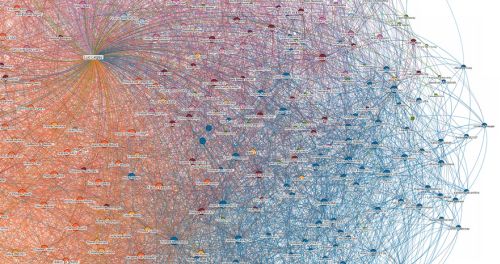
Yesterday John Podesta, the president’s senior adviser, released a highly anticipated report addressing how the administration should tackle the challenges of big data in coming years. So how’d he do? Pretty well, actually. The report recognizes some important new realities and recommends some positive policy solutions for “a world of near-ubiquitous data collection where that data is being crunched at a speed increasingly approaching real-time.”
First, the report must be commended as one of the rarest of birds for a government report—both interesting and readable. The first few sections provide a good overview of the evolution of privacy law through the 20th century and highlight the new, and sometimes scary, world that ubiquitous data collection is bringing us. For example, the report tackles the question, how much is a zettabyte? How is big data transforming neonatal care? Can smartphones help fill potholes?
More significantly, it also addresses several areas of longstanding ACLU concern. From page 60: “Congress should amend ECPA to ensure the standard of protection for online, digital content is consistent with that afforded in the physical world.” Regular readers know we have been beating the drum on this issue for years—we’re glad to see a senior adviser to the president joining our call.
The report also shines a spotlight on the potential for discrimination in a world of big data:
There are new worries that big data technologies could be used to “digitally redline” unwanted groups, either as customers, employees, tenants, or recipients of credit. A significant finding of this report is that big data could enable new forms of discrimination and predatory practices. [Page 53]
It later adds that the federal government’s lead civil rights and consumer protection agencies should expand their technological expertise, and increase their capacity to investigate how to protect against these abuses. As we outlined when we endorsed “Civil Rights Principles for the Era of Big Data,” the potential for high-tech racial profiling and discrimination in employment, lending and insurance are very real, so attention to it from across the federal government would be welcome.
The report is particularly powerful on the issue of predictive policing. It cites a post published on this blog and states directly that “predictive analytics can now be applied to analyze a person’s individual propensity to criminal activity” (page 31). Computer “pre-crime” analysis of individuals would be a major concern for the ACLU and likely many Americans. A respected source writing about this reality will help drive discussion of whether we want police and government going down this road.
Lots of other important pieces:
- Concrete suggestions to improve the practices of data brokers (page 44);
- A renewed call to advance the administration’s Consumer Privacy Bill of Rights (page 61);
- Discussion highlighting the increased importance of metadata (page 34);
The report certainly isn’t perfect. It sometimes overestimates the efficacy of existing privacy protections. And it doesn’t do enough to distinguish valuable applications of big data that can be conducted either with individual consent or de-identified data. Instead, it at least tentatively endorses the idea that consent for data collection must be revisited.
The report’s main flaw is that it rarely mentions the National Security Agency, stating that that analysis is being conducted elsewhere. That ignores the fact that it’s crucial to grapple with national security loopholes for data collection in order to build trust in any data collection system.
The report does say some pretty powerful things about the power of big data and government surveillance:
But big data tools also unquestionably increase the potential of government power to accrue unchecked. Local police departments now have access to surveillance tools more powerful than those used by superpowers during the Cold War. The new means of surveillance that in Justice Alito’s evocative analogy deploy “tiny constables” to all areas of life, together with the ways citizens can be profiled by algorithms that redirect police powers, raise many questions about big data’s implications for First Amendment rights of free speech and free association. [Page 49]
This is a powerful reality that we hope this President and this Administration will take to heart. In the end, however, this is just a report. The revelations about the NSA mean this president has much to account for when it comes to privacy. We’ll all have to reserve judgment until we see actions—on NSA surveillance, on ECPA reform, and on the host of issues this report raises.



